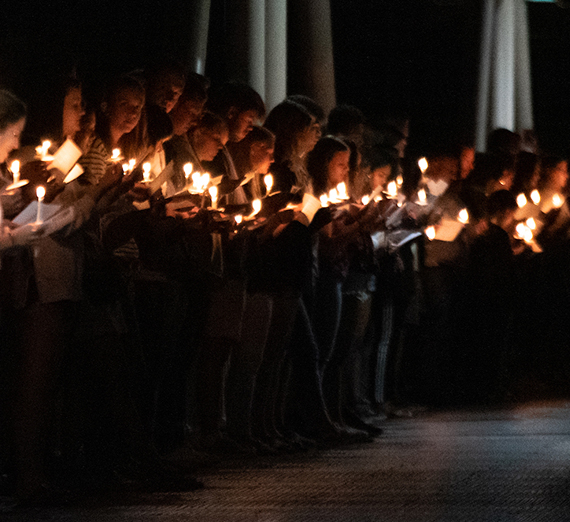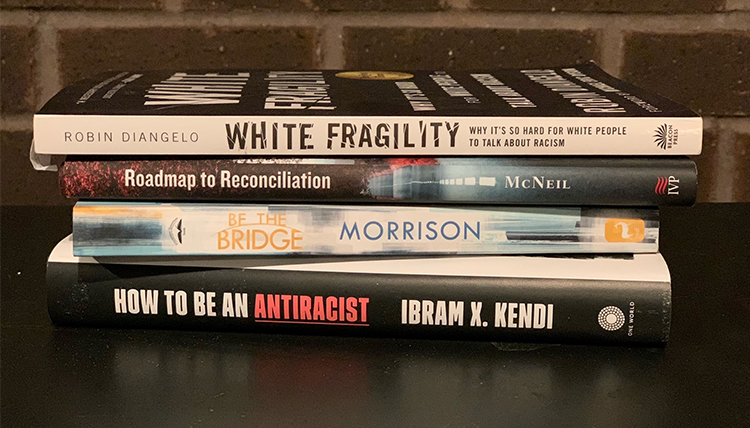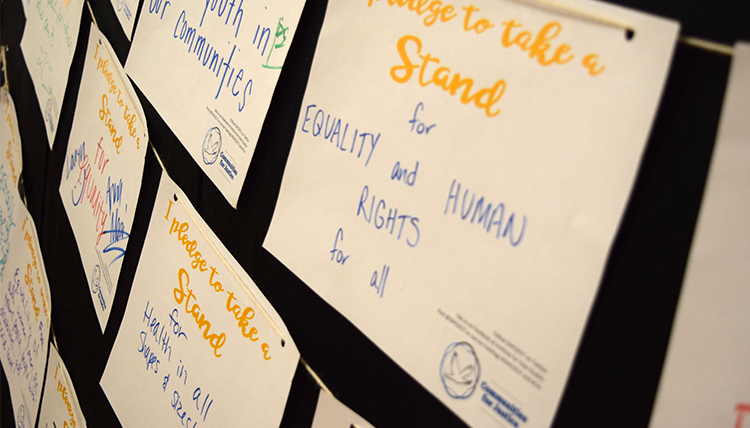Ways Zags Can Help Fight Racism

1. Learn, learn, learn.
Stretch your thinking, challenge your understanding.
2. Represent the cause with a Zags for Black Lives Matter t-shirt.
They’re only $2! Purchase via cashnet (may require Gonzaga account).
3. Take the Anti-Racism Pledge.
Even if you can't purchase the t-shirt, you can still join others pledging to do these things within the school year:
- Attend a Diversity and Inclusion related event.
- Donate to a nonprofit or charity that supports the BIPOC (Black, Indigenous, People of Color) community. (We've provided two options below!)
- Engage in a conversation related to social justice that makes you uncomfortable.
- Post on social media wearing a Black Lives Matter shirt with a positive call to action.
4. Know how to report an act of hate or bias witnessed or experienced in the Gonzaga community.
This applies to experiences in digital communications as well as physical settings.
See the form here.
5. Invest in a student of color with a scholarship donation.
The Bob Bartlett Appreciation Endowed Scholarship is for first-generation students, with preference given to African Americans.
Gonzaga.edu/Bartlett
6. Give to one of many student cultural clubs.
These groups provide invaluable support to Black, Indigenous and People of Color (BIPOC) communities.
Student Clubs
Learn About Being an Ally
Ask Yourself: What do I need to stop doing (that may perpetuate bias)? What should I start doing (that is more inclusive)? What is something I should continue to do (to support others better)?
Know the terminology: What is BIPOC? Why is it important to change “underrepresented minority”?
Reflect on this analogy from Ijeoma Oluo, Author of “So You Want to Talk About Race”
You can't just read a book on racism and think that you are actually doing something. You have to learn and do at the same time. Imagine waking up and realizing that every other house on your block has been on fire and you hadn't noticed until now. You don't look at the fire and say “Geez. I need to go study the history of fire.” You go to the people frantically trying to put the fire out, and you ask, “How can I help?” You listen to the people who know what they are doing, then you get to work.You learn as you go.You don't debate the nature of fire.You don't ask people if they could yell "FIRE" a little more quietly. You focus on the fire. You try to put the fire out if that's where the experts say you need to go.You help those whose homes have already burned down if that's where the experts say you need to go.You listen when experts say that you need to stop doing things that are making the fire worse and don't instead argue that you can't have made it worse because you've always said that you are anti-fire.You don't pray the fire goes away instead of grabbing a fire house.You don't take a break from the fire and hope that it will put itself out while you take a nap. You focus on the fire.”
Fighting racism is always important.
But for context on why some of these efforts are especially important to the Gonzaga community at this specific moment, please see President McCulloh's message from Nov. 8, 2020.


